Setting early expectations at the start of a relationship: a couple interviewed
I sat down with a new-ish couple, Emma and Ryan (pseudonyms), for an interview about how they consciously approached the start of their relationship.
Roy: Thank you both for being here. Why don’t you describe from your perspective, how you met or when you knew there was something more there?
Ryan: Sure, yeah. So we met maybe a year and a half ago at a festival. I met Emma at a science talk and we had a brief conversation, and I thought she was attractive. And she has no recollection of this at all.
Roy: It sounds like the first time I met my partner. She doesn’t remember anything about our first meeting.
Ryan: Clearly, neither of us made an impression. So then I ran into her again last year at a camping trip and we ended up hanging out late into the evening, one night, and I think probably that night, I thought maybe there was something there. But Emma had another partner, and I was still getting over somebody else. So I didn’t really think about it very much. And then we started hanging out. I think a couple of months later, we sort of got together.
Emma: The weekend we were camping I remember just coming away from it and thinking how much I clicked with Ryan.
I remember wanting to spend the whole weekend chatting to him, but was worried that he might think I was weird, just talking to him all the time. He was such an easy person to talk to. I remember after I’ve got home from the trip, texting a close friend of mine and being like, I’ve met this person with whom I just had such a natural connection. His company felt very comfortable.
Roy: So you were hanging out without any kind of expectation of a relationship?
Emma: As Ryan said, I was kind of seeing somebody who, because of lockdown, the relationship never really got off the ground. And so I realized that this friendship I had with Ryan was really quite significant. And the more time we spent together, the more I wanted it to be something more. But there was this mental stumbling block of already being in a relationship. Even when we met those very few times over the summer, I kind of knew that that relationship with the other person was probably dead in the water. So yeah, that meeting, Ryan definitely catalyzed that relationship coming to a pretty natural end.
Roy: Was that something that you discussed between the two of you leading up to you breaking off the other relationship?
Emma: I certainly remember discussing with Ryan openly how that relationship was going. Something that I think also definitely slowed down us getting together, was that I thought that Ryan wanted something different from our relationship as to what I wanted. That was a misconception. We then both realized we were into each other. And I said I think I want a monogamous relationship and I had assumed that Ryan wanted an open or poly relationship. But that was just based on clues that I had gleaned, not necessarily questions that are asked directly. And it turns out that that wasn’t actually the case.
Roy: That’s interesting. So you made assumptions based on what you generally knew about Ryan or things he said, without asking him directly if that was the case.
Emma: Yeah, based on what he’d said about previous relationships. It wasn’t him giving me a false idea of what he wanted. It was just me drawing the incorrect lines between the dots.
Roy: Ryan, is that something that you realize at the time, that was what was going on?
Ryan: I didn’t, I didn’t realize that until we eventually did explicitly talk about it. So we ended up hooking up and then talking about it afterwards, in a way that modern romance tends to be. I think it was at that point that we realized we both wanted similar things. So obviously, Emma was sort of still kind of involved with somebody else. And you know, had she wanted to go and do that, then that would have been fine. I don’t think it would have been complicated, I’ve been in various kinds of poly and open situations in the past. Some of them good, some of them not so good. And I was open to really any kind of relationship style. I don’t have strong feelings one way or the other. I was reasonably open to what Emma proposed when we did actually talk about it, and it was nice to hear that she was interested.
Roy: Have you heard of the term Ambiamourous? It sounds like it kind of describes you. You go for what feels right, depending on the dynamic you have with the person you’re with.
Ryan: No, I haven’t. But I think I like it. Yeah, I like to think of it as ‘will do anything with anyone’, but Ambiamorous definitely sounds better.
Emma: When we had that chat, I explicitly asked you. We knew that we were both into each other and we’ve spent quite a lot of time platonically with each other before this point, so we knew that we had a good connection. At the time, we weren’t sober, and I wonder if that helped to facilitate us being a bit more relaxed with each other. But we still weren’t as close as we are now. Maybe not being sober did break down some potential barriers and allow the conversation to flow.
Ryan: I think it helped. I was happy to move into that kind of space mentally. But you know, if it wasn’t that night, I think it probably would have happened within weeks.
Emma: I remember distinctly when we realized we wanted to give it a go. I remember you saying okay, well, Tuesday, next week, let’s have dinner and start from first principles.
And the phrase, I remember you saying was: “leave all of your preconceptions in the bag at the door, because we start from the foundations up”, which I found a bit intimidating. But I’m really glad you said that, what you meant was that you wanted the relationship to work for both of us from the outset. I’ve never really been with somebody who wanted or needed to talk about things that honestly, from early on, but I really respect that.
Roy: How different Is it from your previous experience with the beginnings of relationships? And do you generally feel this is a better way of approaching a relationship?
Ryan: I think it’s a better way of doing it. In previous relationships, I sort of stumbled about. Neither of us would talk about what we really wanted the relationship to look like for us in future. When things were not right, we didn’t talk about that, either. So you end up projecting or assuming the worst. Actually, it was somebody I dated who had read this book, Radical Honesty, and wanted to have a very forthright conversation from the beginning and be very explicit and direct. I found that this framework was particularly helpful because it compelled us to speak the truth, most of the time. Understanding that your truth would be accepted by the other person, even if it wasn’t convenient, or what they wanted to hear. That was actually a really useful relationship skill. I’ve tried to bring it into my subsequent relationships with, I would say, 7 out of 10 success.
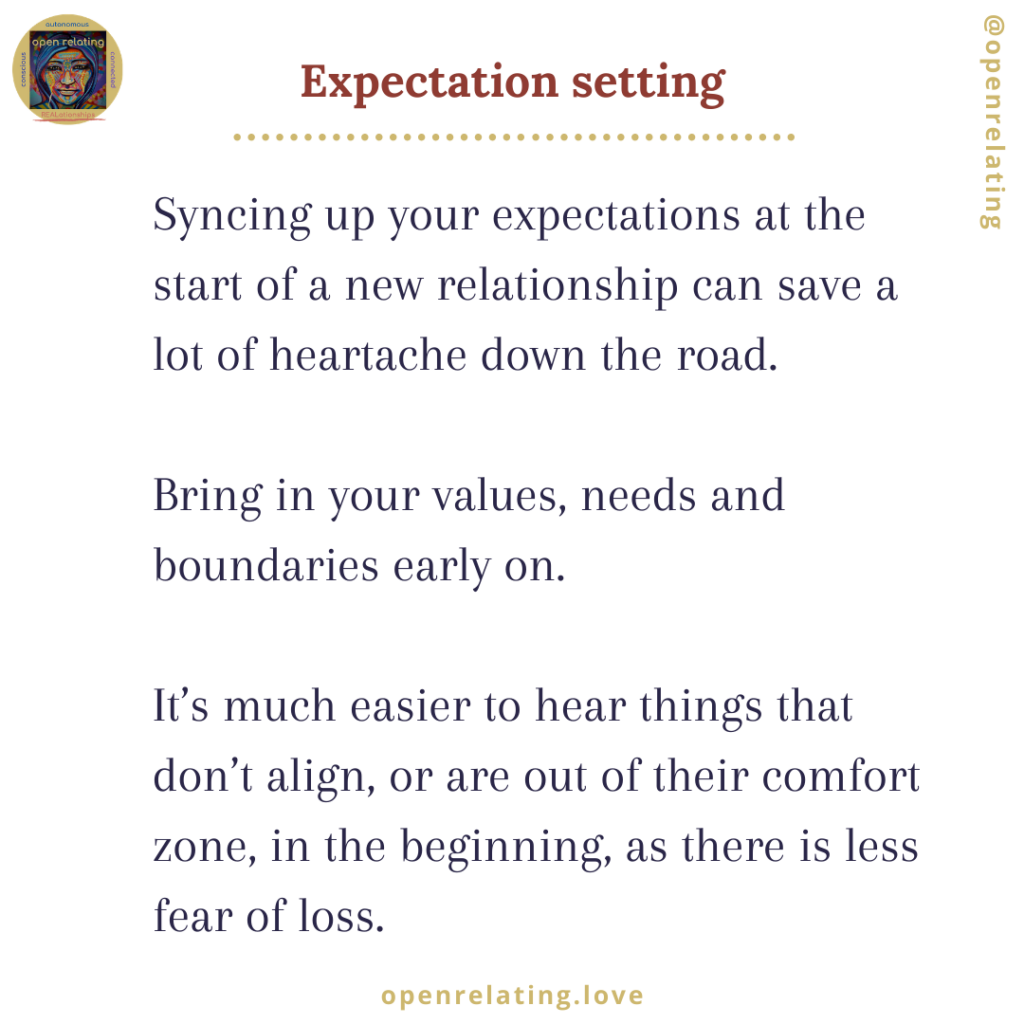
Emma: It’s definitely not something that I’ve done before. In previous relationships I’ve felt a lot less emotionally intelligent. I’ve definitely learned a lot from them. I came into this relationship following a reasonably painful breakup, not too fresh in my mind, but still there. I learned a lot about myself from that and I learned a lot about what I needed from our relationship from that breakup. I feel like I’ve improved a bit with every relationship I’ve been in.
The way we’ve been honest like that, from the outset, is great. I mean you wouldn’t buy a property without having a survey done, just on a whim “Yeah, I’ll buy this house”. That’s definitely how I’ve worked in previous relationships. As time goes on, problems creep in, and you go into the foundations of the house, and you realize something is wrong. I feel a lot more secure in this relationship, because of the way that we’ve been honest and open about what we wanted.
Roy: Ryan, that relationship you mentioned where you practiced Radical Honesty, was that a polyamorous relationship?
Ryan: It was, yeah.
Roy: Do you feel having the experience of open or poly relationships reinforces the need for full honesty and transparency?
Ryan: Yeah,
I think that to maintain a poly relationship you require superior communication skills, more communication skills than you require in a monogamous relationship.
Because you have extra dimensions, things like jealousy, scheduling, and safe sex. All of these can be awkward to talk about, but you need to be explicit to make it work. I think the fact that it was poly increased the challenge level. Really the only way I could have a poly relationship is where everybody was very straightforward with everybody else about what they want and what they’re getting out of it and what they don’t want.
Roy : Emma, you’ve not had open relationships in the past? Your relationships have all been monogamous, right?
Emma: Not a consenting open relationship.
Roy: So in that sense, having the conversation about what your relationship expectations are, did it look different from your perspective, knowing that Ryan did have that kind of experience? How does that fit into your idea of what a relationship should be like? Or your ideals? And how did that discussion go?
Emma: Definitely. Even though it’s not something I think I have wanted, and I’m open to what might happen in the future, I can’t see myself wanting it necessarily anytime soon. But I think Ryan approached our relationship in a different way to partners I’ve had before who hadn’t been poly or open. And I think that level of emotional intelligence had come from your experiences. I definitely respected that. I think it has put you in lots of situations that’s taught you a lot, that you’ve been able to bring to this relationship, even though it doesn’t have all of the same features.
Since my last relationship, I’ve definitely spent more time with people who have different relationship dynamics and make them work and it’s just a case of learning from other people and the crowds that we mix in, just seeing how other people make it work, and having that exposure to that, I guess.
Click here to read part 2 of the interview
-
 Initial Consultation (20 minutes)£25 Deposit
Initial Consultation (20 minutes)£25 Deposit


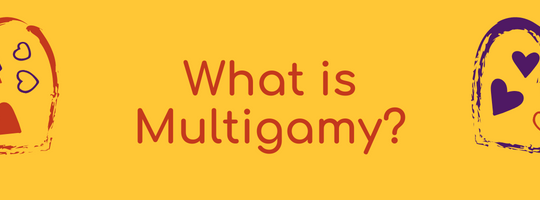
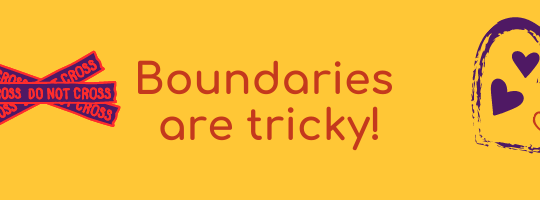
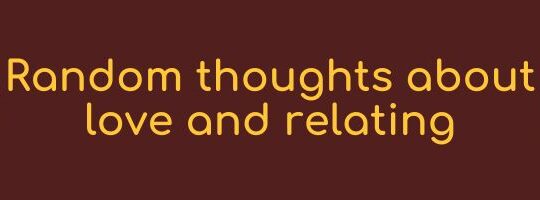
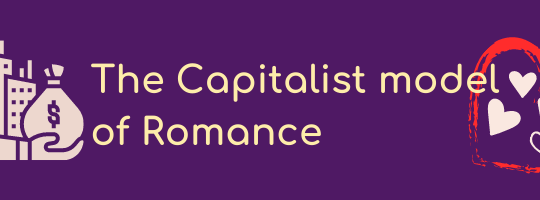
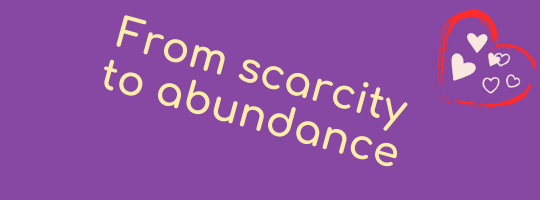
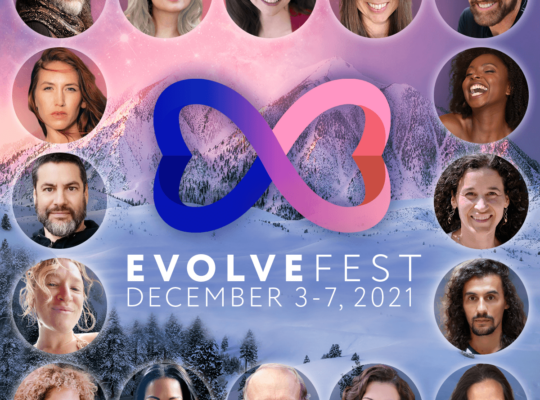
[…] Click here to read part 1 of the interview […]